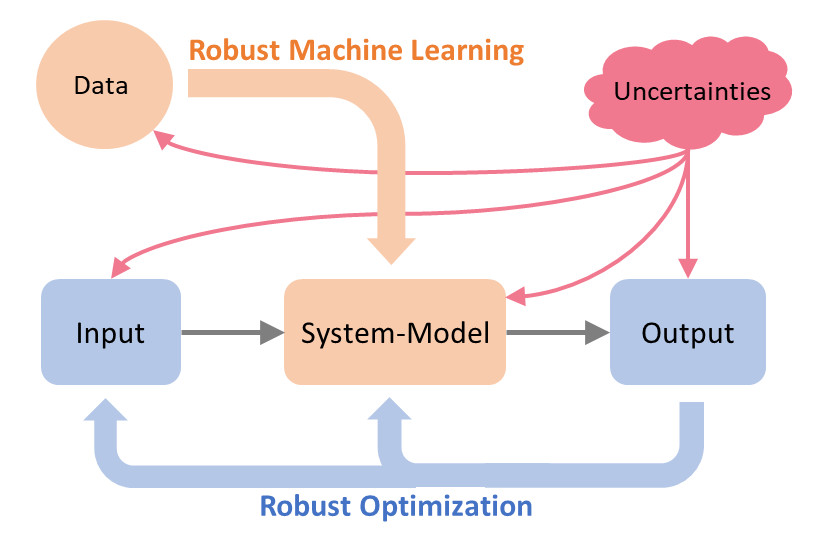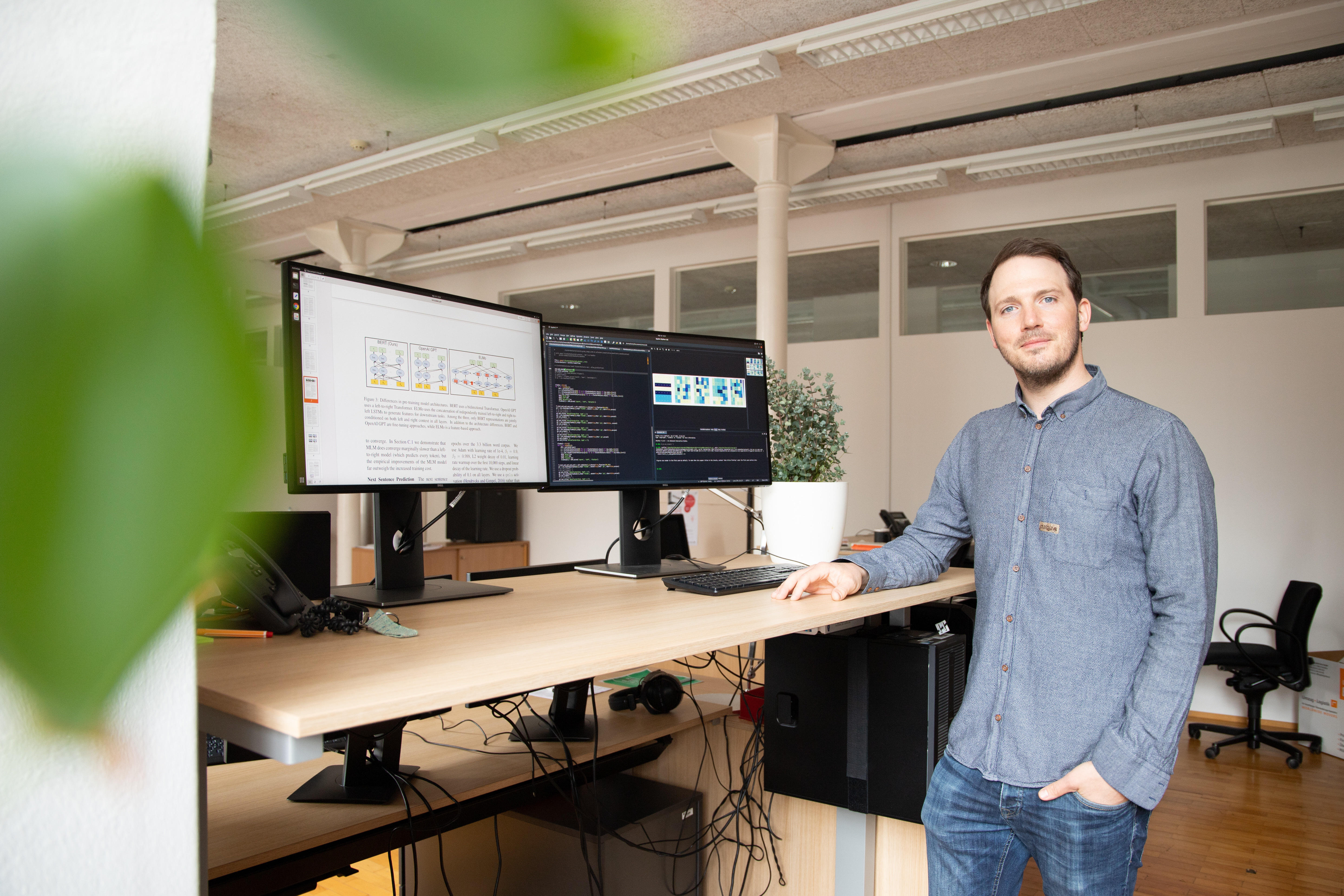JR Centre for Robust Decision Making
Head of research unit
Commercial Partner
Duration
Thematic Cluster


As the volume of data increases, many companies are endeavouring to derive precise conclusions for their own business processes from this data and to use these findings in a targeted manner. Building on machine learning and optimisation algorithms, this JR Centre develops robust procedures that allow the influence of uncertainties on business processes to be reduced and stable, data-driven decisions to be made.
A continuously growing degree of digitalisation can be observed across all industries. This digital transformation is not limited to the recording and visualisation of process and product data, but is increasingly extending to the derivation of automated conclusions on corporate development. Examples include the world of finance, maintenance technology and process management in production.
Due to the volume of data and the complexity of its correlations, this is only possible to a very limited extent for human decision-makers. The use of suitable mathematical methods for processing and analysing data is therefore becoming increasingly important. In order to design such methods reliably and efficiently, they must be adapted to the respective application and the data situation in the company. In addition, the algorithms used must be able to extract unknown relationships from the data independently and make automated statements according to predefined (or learnt) criteria. The statements generated can be used as decision-making aids for domain experts or fed directly back into the process.
However, these methods are subject to a large number of uncertainties, which can make it considerably more difficult to reliably map the company's own systems and influence the statements to be generated. These application-specific uncertainties can be attributed to either the system or the environment. If models and algorithms realise reliable statements despite these uncertainties, they are referred to as robust algorithms.
The overarching goal of this JR Centre is to develop robust classification, forecasting and optimisation methods based on problems from manufacturing technology and the financial sector. The research work includes the identification of process-specific influencing factors, the targeted analysis of existing models and the design of new models. From this, optimisation methods are developed to determine robust decisions. Due to the complexity of the model, heuristic methods and in particular evolutionary algorithms are increasingly used in the optimisation step. These only require the evaluability of the corresponding models and do not place any demands on the analytical structure of the problems. Suitable parallelisation approaches and computing environments are then developed in order to integrate the methods into the data processing procedures of companies."

Christian Doppler Forschungsgesellschaft
Boltzmanngasse 20/1/3 | 1090 Wien | Tel: +43 1 5042205 | Fax: +43 1 5042205-20 | office@cdg.ac.at

